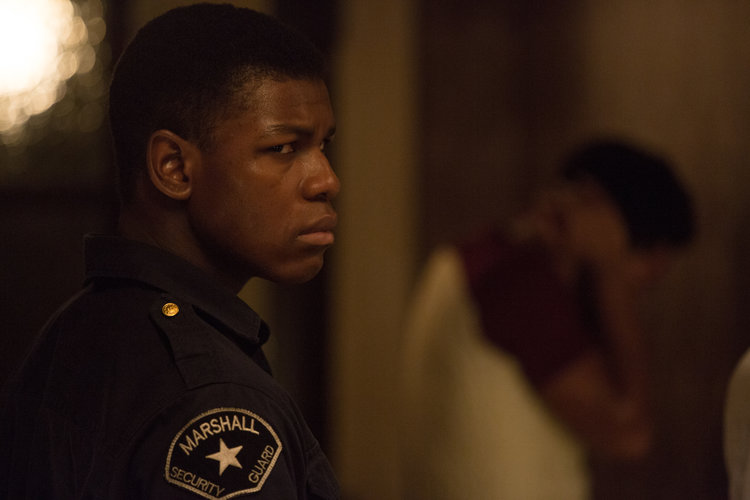Robert Cairns pins down why Detroit is the hard and sometimes brutal watch we all need to see.
A bloodied, tear-stricken face presses against a misted screen with an incomprehensible agony: It’s at this moment that you realise Katheryn Bigelow’s exploration of the 12th Street Riot that destroyed the streets of Detroit during the summer of 1967 is going to be breathless, and even less forgiving. An unflinching study of race, gender, and politics, Detroit is as much educational as it is gut-wrenchingly entertaining.
The film’s success begins with its remarkable casting. John Boyega, portraying a conflicted African American private security guard, expresses all the internal tensions present in a man shunned by both sides of the colour line. Often silent, detached, and reclusive, Boyega acts as audience surrogate- the lens through which we see the unfolding events reflected across his cold, restrained face. Likewise, Will Poulter is excellent, conveying an inherent evil you would barely think possible from his earlier performances. He is utterly hateable, commanding the film’s events with an electric agitation for violence and power from start to finish. However, it is Algee Smith and Jacob Latimore that you remember- their conveyance of ecstasy, compassion, terror, resilience, and defeat are touching to a heart-breaking degree. Their broken bodies haunt you well after the credits have ceased to roll.

At times, Detroit is barely watchable, as its depiction of physical and psychological torture encircle you until there is nowhere safe to look except from the blissfully ignorant cavern that is the back of your eyelids. With very little music underpinning its most climactic scenes, the tension is taut and razor thin, allowing for every raised voice, physical blow, or bead of sweat to surgically cut through you without ever toppling the film’s balance into one of hideously glamorous excess. Yet, despite the difficult viewing, it is important to witness nonetheless; as Detroit shows us, the truth will never reveal itself if we choose to look away.
Where Detroit shines brightest, however, is in its distinct polarisation of intimate and communal space. With her sporadic incorporation of close up and long shots, and her decision to often shield the camera’s subject behind the silhouette of a different character, Bigelow captures and weaves segregation into the very reels of her film, as the social separation between white and black, oppressor and oppressed, and actor and audience becomes all too clear. Not only does this both distance you from the violence while simultaneously holding the same violence an inch from your face, it leaves you in an aggravating space of liminality, consciously aware of your own involvement and your powerlessness to prevent it.
As Detroit informs us in its final sequences, the events that bloodied the Algiers Motel on the 25th July 1967 were never properly disclosed. But Bigelow’s fantastic reconstruction of the events leaves you with no doubt as to the shocking extremes which they more than likely reached.
Robert Cairns
(Image courtesy of Francois Duhamel, AP)

